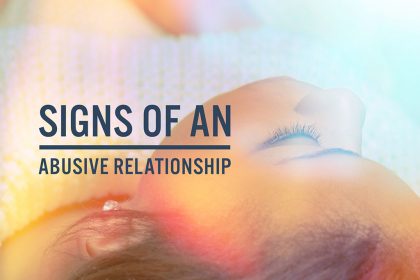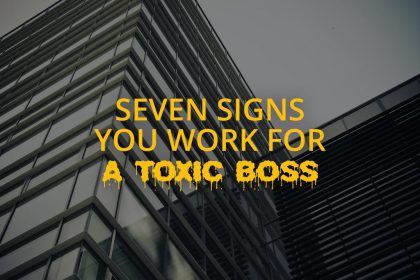Domestic abuse – what to do if you’re feeling vulnerable or unsafe in lockdown
Are you struggling in lockdown with your partner? Has an already difficult relationship become unbearable? Find out what to do if you’re feeling vulnerable or unsafe.
Since lockdown was instigated on 23rd March 2020, abuse charities have reported over 100% spikes in calls to helplines and their online services.
The Government have taken on board these figures and provided £2million in funding to assist those vulnerable sufferers and created the campaign #youarenotalone to highlight awareness.
But what happens if YOU are stuck in a difficult or unbearable relationship? If lockdown has made you realise that your partner isn’t just miserable, unreasonable or easy to anger, but quite possibly abusive?
Paula Rhone-Adrien is a leading family law barrister with over 20 years. In this article she shares advice on what you might want to do right now – both in the short term if you feel like you are in danger, and planning for your future.
Most people hang on for as long as they can
It’s hard admitting that your relationship has broken down. While others around you manage to maintain a loving union, you have, well, failed, haven’t you?
So it’s no surprise that most people will tell you that they hung on for as long as possible before accepting the inevitable and ending a relationship or marriage.
But what about if the person you are in a relationship with makes you feel worthless, unhappy, and even scared? What if you’ve barely spoken to your friends or family about the creeping darkness that has enveloped you and the love you once had for your partner?
Domestic abuse comes in many shapes and forms. Many people who have managed to escape their abusers will tell you that it took years of counselling before they were able to accept that they were even suffering.
Most eventually leave because the abuse becomes so suffocating or life threatening that they are almost left with no choice, particularly where there are children involved.
It takes three years to leave an abusive relationship
Even if you manage to escape, then the real fear kicks in: who will believe you? So one is not surprised by the statistics that inform us that it takes years, on average, three years for a sufferer to leave their abuser, and in some cases so much longer.
The Domestic Abuse Bill is currently making its way through parliament and is intended by the Government to make new protective laws for those suffering from domestic abuse.
The Government informs us that domestic abuse is a hidden crime and yet we know that over a million calls are made to the police each year citing domestic abuse. We also know that on average, two women a week are killed by their partners and that since the last three weeks of lockdown this has risen to five, yes, five a week.
Why do people stay in abusive relationships?
With those shocking figures in mind, of course the question that people really want answered is: well why do they stay? However, just as domestic abuse comes in many forms, so to the reasons for why it can take so long to leave.
Many sufferers will say that the emotional abuse is far worse than the physical. A broken bone will heal, but the impact on your mental health is debilitating, particularly if your abuser strips you of your support network, your access to finances and even makes you doubt the most simplest things about yourself, like whether your choice of clothing or make up is appropriate.
Perhaps you’re still saying, no that’s not me, or maybe even no one I know. However, one in five children grow up in a household where there is domestic abuse.
So the next time you walk past an open area where there are children playing or pass every fifth child on the street, imagine what they may be going home to.
Even when they leave, some people return
It is also true to say that even if you do manage to leave, often times you may return because, put simply, it is easier. It’s hard to believe, but it’s true.
Sadly the system is buckling under the weight of those in need and due to certain failures it is easy to find yourself back in the arms of your abuser. However, unless they receive professional, prolonged therapeutic help they won’t change, and neither will your desperate situation.
If you are feeling vulnerable then understand, the abuse charities, the police, lawyers, and judges really do want to help. They do understand your struggle and will do their best to ensure that you can have more happy days than sad.
What to do if YOU are in an abusive relationship in lockdown
So what can you do if you believe you are suffering from domestic abuse during lockdown?
The first thing you want to do is exactly the same as you did yesterday and the day before. You know your abuser better than anybody and what most of their likely triggers are.
Sufferers of abuse are at their most vulnerable when the abuser realises that their partner is about to or planning to leave. So if during lockdown you think you would be safer sitting put for three weeks then that is what you should do.
However, if your life is in danger then you must call 999, if you can’t speak then try to press 55 (when prompted). Or try and make coughing, tapping or scratching noises in a rhythmic fashion to alert the dispatch caller that you are unable to speak.
You can also call the National Domestic Abuse 24-Hour Freephone Helpline on 0808 2000 247 or contact the helpline via Refuge’s contact form. Not in the UK? You’ll find a global list of domestic violence hotlines here.
If your abuser allows you access to your phone or the internet then try to regularly check in with a friend or family member, even if it’s just a one word text. Remember, you can dial 999 on a locked phone, so even using your abuser’s phone is an option if necessary.
You can access abuse charities online and explore your options about how you can leave. Although please remember to clear your internet search history after you have done this and if you’re not certain how, just put the question into your search engine and it will tell you.
You don’t want to risk your abuser looking at what you have been doing online in preparation to leave.
If you need to flee, go to a police station, hospital or GP surgery
Sometimes you have no choice and are forced to leave with just the clothes on your back. That’s okay, you still have options. If you are on foot then try and get to your local police station, hospital or GP surgery, they will have telephone numbers for local charities and be able to sensitively signpost you to safety.
Most friends and family won’t know for certain that you are suffering, so tell them. If you are one of those who suspects but aren’t certain then you can still help.
It is not easy to identify a sufferer, they may be incredibly proud or have withdrawn from you after a silly argument, but you will see that the abuser is at the heart of the change in your loved one’s behaviour. There is little point in telling your loved one that they should leave. This is a decision only they can take and you must respect this as hard as it is.
What your family member or friend needs to know is that you will not judge and that when they finally make the decision to leave you will be there to support them.
Finally, please understand that the police, social services, abuse charities and the courts can and absolutely will help to ensure that the sufferer is equipped with the tools to become a survivor.
Read more advice on abusive relationships
You can find more advice on abusive relationships in these articles:
- How to spot the signs you’re in an abusive relationship – and what to do
- What to do if you’re trapped in an abusive relationship in lockdown
- Seven ways to move on from a toxic and abusive relationship
- 15 telltale signs of an abusive relationship

Paula Rhone-Adrien is a leading family law barrister with over 20 years of experience. Keep up to date with her journey on Instagram.
Photo by Sydney Sims










